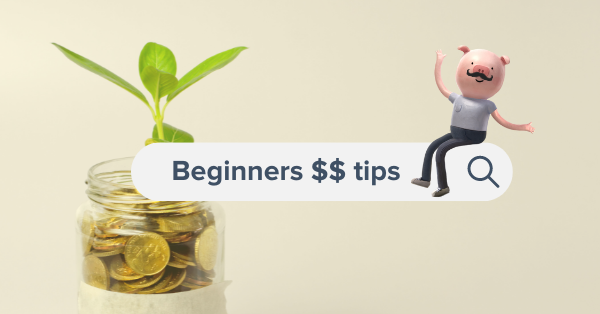Unsure how to kickstart organising your finances? Here's a step by step guide you can follow to get your finances in order!
1. What do you have incoming each month?
Write down the money you receive every month that goes into your bank account. This should be all your streams of income, from your monthly salary to any extra income you make - such as side hustles, ACC, benefits etc. Want extra streams of income? Check out more info on our blog!.
2. Take note of fixed expenses.
Make a list of your fixed costs: rent, water, power, gym membership, cell phone, children's school and anything else that you always have to pay, every month. Do this slowly and make a note of everything, even if it appears minor and insignificant, such as subscriptions. One helpful approach is to print out your last three months' bank statements and underline everything that came out of your account.
3. Variable expenses
Then it's time to account for the variable expenditures. They include food, entertainment, recreation, and medical costs, among other things. Set a maximum amount for each of these costs; now, carefully examine each item to determine where savings may be made. Assume you spend around $800.00 per month on food. However, you discovered that you are overspending on unimportant items or ending up with too many leftovers. This is where you'll save money! Set a slightly smaller amount aside for this cost that can be cut. Maybe you only need to set aside a maximum amount of $700.00, for food, by reducing foods that go to waste often or extra takeaways/lunches out.
The goal is to get the best use out of your money.
When you organise your finances, you end up generating a "map" of how you want to spend your money. And, of course, if used regularly, that map can create some fantastic, healthy money habits!
4. Set some serious money goals
You've previously examined your finances and planned how you'd spend them; now it's time to set goals and objectives. As a result, you'll understand why you should save money (the next good financial habit you need).
Many people fail to save because they lack a defined goal for which they want to utilise the money. When you have a specific objective in mind for which you need money, it is much easier to be motivated to save and invest. Oh, and don't forget that these objectives must really speak to you. Otherwise, saving money becomes a burden rather than an inspiration for the daily grind.
5. Pay yourself first
Have you ever heard of this phrase? But do you understand what that means?
Paying yourself first means prioritising your goals first and foremost.
Whether it's your dream home, a trip, a course to improve your skills, or anything else you may want to invest in... when you receive your cash, you set aside a portion of it towards your goals before doing anything else. We believe this is the most important money habit - to set your goals and achieve them! This is because it prioritises you over your money. As a result, you will never be a slave to your accounts and bills again! It's all about planning and prioritisation!

.png)